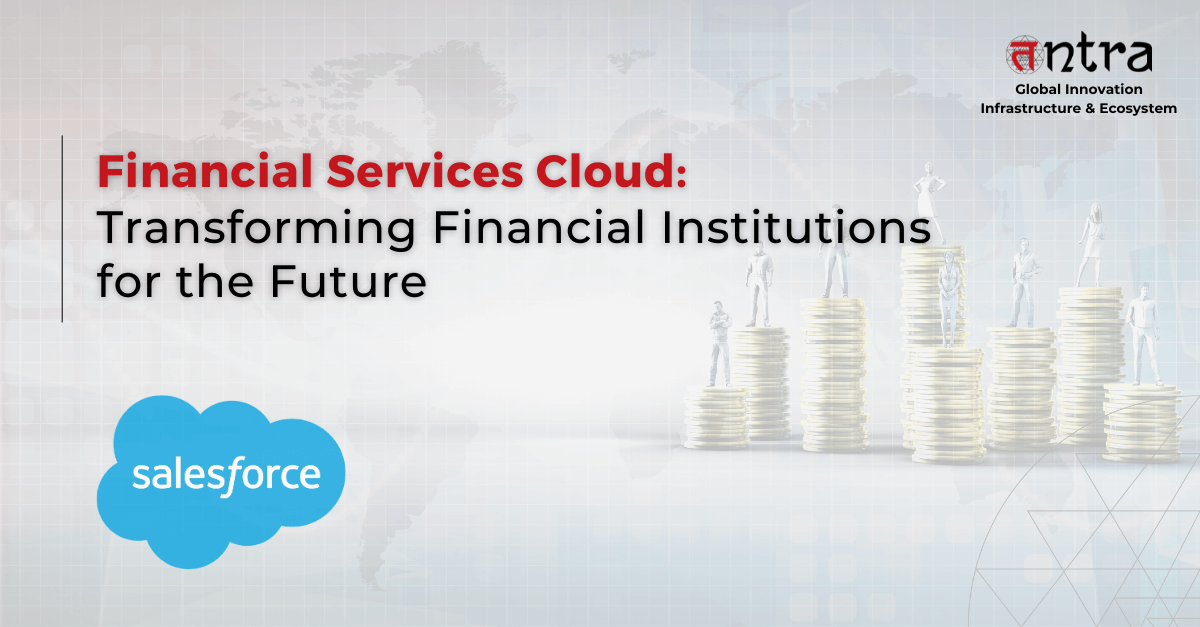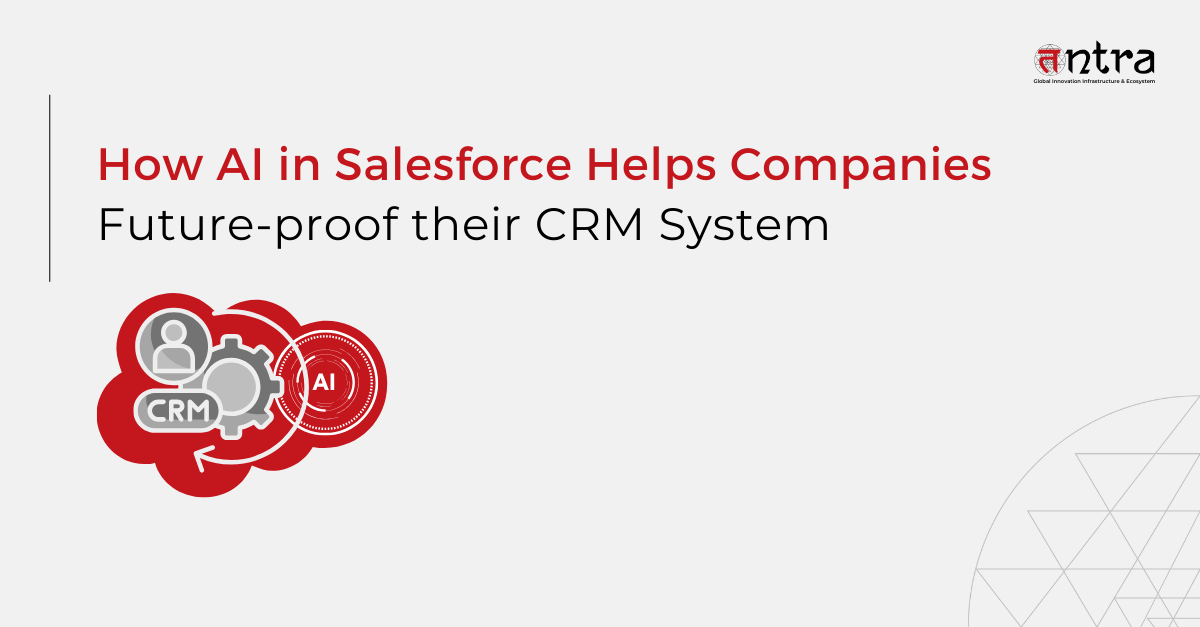
Financial Services Cloud: Transforming Financial Institutions for the Future
Table of Contents
ToggleSummary
Salesforce Financial Services Cloud (FSC) is at the forefront of digital banking transformation, enabling financial institutions to leverage cloud-based financial solutions that deliver a 360-degree view of customer data, improve collaboration, and enhance operational efficiency. However, successful financial service cloud implementation requires a clear data strategy and alignment with business goals to avoid inefficiencies and compliance issues. Tntra specializes in optimizing Salesforce Financial Services Cloud services, ensuring seamless integration and maximizing the platform’s potential. With the right approach, organizations can unlock the full value of FSC and drive measurable business results. Continue reading to learn more
LV= Case Study: Cloud Adoption in Banking and Insurance
With more than 7 million clients, LV= General Insurance aimed to satisfy evolving customer demands for individualized, efficient services across multiple channels. However, fragmented CRM systems impeded a comprehensive understanding of client needs. By embracing banking cloud solutions, LV= demonstrated how cloud adoption in banking can centralize customer data and streamline operations, paving the way for enhanced customer experiences and improved efficiency.
In 2019, LV= adopted Salesforce Financial Services Cloud solutions alongside MuleSoft and Marketing Cloud to centralize customer data, optimize processes, and enhance digital capabilities. Through FSC for financial institutions, LV= improved contact, policy, and claims management, while Marketing Cloud automation enabled real-time delivery of personalized emails and marketing content. MuleSoft facilitated seamless integration with external systems.
The integration of Salesforce FSC for banks and insurance companies helped LV= digitize essential processes, such as client communications and claims reporting. Automated forms introduced during the COVID-19 pandemic reduced the workload on service teams. Experience Cloud’s broker portal provided real-time access to claims, enhancing response times and collaboration.
As a result, customer satisfaction and operational efficiency improved significantly. Open rates for personalized emails reached 98%, while sales and cross-selling increased by 128% and 500%, respectively. By adopting cloud technology for financial institutions, LV= reinforced its leadership in the insurance sector, demonstrating the transformative power of Salesforce FSC benefits.
(Source: Salesforce)
Salesforce and Its Growing Demand
The largest CRM users by industry are in the services sector (32%), which includes real estate, agency, and construction firms. Manufacturing and IT organizations follow with 13% and 13% of the market, respectively.
In terms of ROI, if we project a 1.5 times CRM ROI rate, CRM will reimburse firms for at least $45.72 for every dollar they spend in 2024.
About 90% of Fortune 500 businesses use Salesforce CRM to improve customer interactions, productivity, and profitability, according to the Salesforce annual report.
How Salesforce Financial Services Cloud is Transforming Financial Institutions
In the competitive financial services industry, Salesforce Financial Services Cloud services enable institutions to tackle evolving challenges in customer experience, compliance, and operational efficiency. By offering a unified, 360-degree view of customer data, FSC empowers financial institutions to streamline processes and improve collaboration. However, a strategic approach to financial services cloud implementation is crucial to achieving these benefits.
The Power of Salesforce Financial Services Cloud
The benefits of Salesforce Financial Services Cloud make it uniquely tailored to meet the needs of banks, insurance companies, and wealth management firms. By leveraging Salesforce for wealth management and advisors, financial institutions can provide personalized services at scale while gaining a comprehensive view of their clients’ financial lives. This powerful tool is key to transforming financial institutions using Salesforce FSC, enabling them to streamline operations, enhance collaboration, and deliver exceptional customer experiences. With Salesforce Financial Services Cloud for financial institutions, you can achieve the following advantages:
The Key Benefits of FSC for Financial Institutions:
- Improve Customer Relationships: Financial services cloud for banks and insurance provides a 360-degree view of every client, consolidating all the relevant financial data, whether banking transactions, investment portfolios, or insurance claims, on one platform. This enables financial advisors and customer service teams to provide more personalized advice in a timely manner and makes customer interactions more effective and efficient.
- Operational Efficiency: Salesforce financial services cloud benefits increase efficiency by centralizing data and automating key processes, reducing manual work and minimizing errors to improve productivity. For instance, wealth managers can manage client portfolios, track performance, and adjust strategies in real time-all within the Salesforce environment. Similarly, insurance agents can manage policies, claims, and renewals seamlessly, improving workflow efficiency across the organization.
- Improve Collaboration: With Salesforce, a collaborative environment such as Chatter and real-time communication features enable financial services teams to share insights, discuss strategies, and resolve client queries more efficiently. Cross-departmental collaboration becomes smoother, improving overall customer service and decision-making.
- Uncover Key Insights with Data: Analytics embedded within Salesforce, coupled with the power of Einstein AI, equips financial institutions with deep data analysis to project trends, gauge risks, and make better business decisions. In turn, firms can predict client needs, identify emerging opportunities, and take timely interventions on high-value clients.
The Challenges of Implementing FSC
While the Salesforce Financial Services Cloud features are clear, it is not without its challenges in successful implementation. To leverage financial services cloud fully, financial institutions must take a structured approach, especially in how they manage data and align goals.
- Data Strategy: Maintaining clean, centralized, and accessible data is critical for effective financial data management cloud operations. FSC is a data-driven platform, and the accuracy and integrity of the data fed into the system are very important. Without a clear data strategy, financial institutions could have fragmented, inconsistent, or incomplete data, which will lead to inefficiencies in decision-making, missed opportunities, and issues with compliance. Institutions need to make sure their data is clean, centralized, and accessible to the right stakeholders at the right time.
- Alignment to Goals: Successful deployment of financial services cloud solutions for financial services means that there needs to be a corresponding alignment to business goals. A financial institution often finds its operations siloed; departments may have different goals or methods that actually conflict with one another. To avoid inefficiencies, well-thought-out objectives must be defined in which all teams-from Compliance and Risk Management to Customer Service and Marketing-are on the same page. This will facilitate smooth processing and full utilization of the platform.
- Compliance Issues: The financial services industry is one of the most highly regulated, and it’s important to observe both local and international laws. Not having a clear vision of the requirements for legal compliance may result in non-compliance, which is very serious both legally and financially. They have to implement their compliance framework on the financial services cloud platform. Also, monitoring and reporting need to be available for further assistance.
How Tntra Supports FSC Deployment
At Tntra, we play a key role in assisting financial institutions with the complexities of Salesforce Financial Services Cloud implementation. We understand that a seamless and successful deployment of FSC demands not just the right technology but also a well-defined data strategy and alignment with business objectives. Our team of Salesforce Financial Services Cloud consultants collaborates closely with you to ensure your FSC implementation is optimized for maximum efficiency and compliance, enabling your organization to fully unlock the platform’s potential benefits.
Unlock the full value of Salesforce Financial Services Cloud, improve customer experiences, streamline operations, and drive measurable results for your business by partnering with Tntra. Let us help you through the complexities of financial services technology and change the way you engage your clients.
Future of Financial Services with FSC
The future of financial services with Salesforce Financial Services Cloud lies in its ability to enable institutions to adopt innovative technologies like fintech cloud platforms and blockchain in financial services cloud environments. By embracing cloud adoption in banking, financial institutions can achieve long-term success, foster innovation, and transform how they engage with clients.
Embracing FSC: The Key to Future-Ready Financial Services
As you can see, Financial Services Cloud is more than a flashy software solution; it’s an intense driver for changing the way financial institutions function and thrive. By unifying customer information, streamlining repetitive tasks, and providing smart insights, FSC paves the way for more strategic, customer-focused operations. In a time where trust and efficiency reign, adopting this technology might just be the distinction between falling behind and leading the pack.
It’s the ideal time to evaluate your readiness as an organization for this next step. If you’re feeling that your legacy systems are bogging you down or your customer engagement initiatives require a new shot in the arm, it may be an indicator that FSC is the way to go. Keep in mind, digital transformation is not so much about the addition of tools—it’s about transforming your entire strategy for serving customers and staying compliant with regulatory requirements.
If you would like to know in detail how Financial Services Cloud can benefit your business, our Tntra Salesforce experts will be glad to assist you. Let’s work together to find the best path forward, based on your unique set of challenges and goals. After all, in finance, the name of the game is constant innovation — and there’s no better time to start than now.
FAQs
- What are the key considerations when planning FSC implementation?
Key considerations include:
- Data Strategy: Develop a plan for data migration, cleansing, and integration from legacy systems.
- Customization Needs: Define industry-specific workflows and compliance requirements.
- Stakeholder Engagement: Involve leadership and end-users early for buy-in and smooth transition.
- Change Management: Implement training and support programs to encourage adoption.
- How can I integrate FSC with my existing systems and tools?
Integration involves:
- API Connectivity: Using Salesforce’s APIs to connect FSC with core banking, insurance, or wealth management platforms.
- Middleware Solutions: Employ tools like Mulesoft for seamless data exchange.
- Custom Development: Leverage Salesforce AppExchange or custom-built solutions for industry-specific needs.
A detailed integration roadmap ensures minimal disruption and maximized ROI.
- What are the best practices for managing regulatory compliance during FSC implementation?
- Pre-Implementation Assessment: Identify compliance requirements specific to your geography (e.g., GDPR, CCPA, or PCI DSS).
- Audit Trails: Use FSC’s tracking features to monitor and log all client interactions.
- Automation of Regulatory Processes: Configure workflows to enforce compliance checks automatically.
- Expert Consultation: Engage compliance specialists to guide configurations and audits
- How can organizations maximize ROI from Salesforce FSC?
To maximize ROI:
- Leverage advanced analytics for trend forecasting and strategic decision-making.
- Continuously optimize workflows and automation rules to reduce inefficiencies.
- Explore integrations with AI tools like Salesforce Einstein for predictive analytics.
- Regularly assess and adapt FSC features to meet evolving client and market demands.
- Should organizations choose an in-house team or a consulting partner for FSC implementation?
In-house Team Benefits:
- Greater control over customization and day-to-day operations.
Consulting Partner Benefits:
- Access to Salesforce-certified experts with deep implementation experience.
- Faster implementation with proven methodologies.
The choice depends on the organization’s internal capabilities, timeline, and budget.
- How does FSC support innovation in financial services?
Salesforce FSC supports innovation through:
- AI-Powered Insights: Enable smarter client targeting and personalized product recommendations.
- Real-Time Collaboration: Teams can access data and interact with clients anytime, anywhere.
- Open Ecosystem: FSC integrates easily with third-party solutions, fostering innovative service delivery.
Organizations can use FSC as a foundation for launching new financial products or services, keeping them ahead in a competitive market.
- How does FSC benefit banks and insurance companies?
FSC helps banks and insurance companies by centralizing customer information, which enables teams to provide seamless and personalized interactions. Banks can use FSC to manage loans, track account activities, and identify cross-selling opportunities, while insurance companies can streamline claims processing, monitor policy renewals, and ensure compliance with regulations. The platform’s automation capabilities reduce manual efforts, and its insights empower institutions to build trust and long-term client loyalty.
- What industries use Salesforce FSC?
Salesforce FSC is used across various financial industries, including banking, insurance, wealth management, asset management, and capital markets. Additionally, it caters to industries like mortgage lending, credit unions, and retirement planning.





